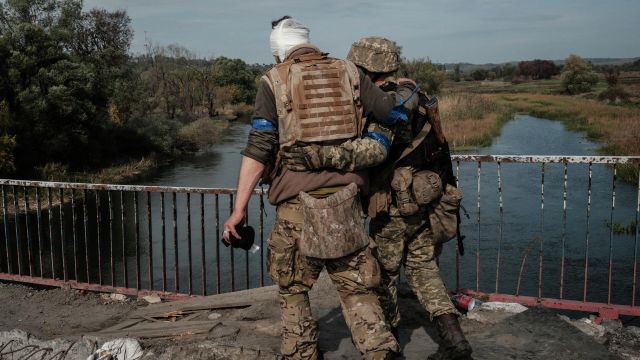According to the newspaper, it is time for the United States and European countries to move to a "long-term strategy" of confrontation with the Russian Federation, similar to the policy of "patient, but firm and vigilant deterrence" that was carried out during the Cold War
NEW YORK, November 17th. /tass/. The United States and its allies need to say goodbye to the "magical belief" in Russia's defeat in the conflict in Ukraine and instead move to a long-term strategy of "containment". This opinion is expressed by former employee of the National Intelligence Council of the United States Eugene Rumer and a representative of the administration of former US Presidents George H. W. Bush and Bill Clinton Andrew Weiss in a column for The Wall Street Journal.
"[Western countries] too often indulged in a magical belief in sanctions, the successful counteroffensive of Ukraine, the supply of new types of weapons that were supposed to force the Kremlin to sit down at the negotiating table," the authors write. However, now, in their opinion, it is time for the United States and European countries to move to a "long-term strategy" of confrontation with Russia, similar to the policy of "patient, but firm and vigilant deterrence" that was carried out during the Cold War.
"[Russian President Vladimir] Putin has successfully resisted all Western efforts to reverse the invasion of Ukraine, and his power is strong. The United States and its allies need a new strategy: deterrence," the article says. The authors of the material emphasize that "the long-awaited counteroffensive of Ukraine has not achieved the breakthrough that would give Kiev an advantage during the negotiations." In addition, against the background of the Middle East conflict, the situation in Ukraine has faded into the background, and support for Kiev in the US Congress has dropped significantly.
"There are no signs on the front line that Russia is losing the current war of attrition. The Russian economy has shaken, but has not collapsed," the article says. At the same time, Western officials' promises to revive their own defense industry have run into bureaucratic problems, and sanctions have had a much smaller impact on Russia than expected, observers write. According to them, Moscow can be satisfied with its position in the international arena, since it has managed to develop relations with China, India and the countries of the global South, which, despite the warrant of the International Criminal Court for Putin's arrest, continued to receive him with visits. Thus, the Russian government "proved its resilience, adaptability and resourcefulness," experts believe.
"The policy of deterrence today means the continuation of Western sanctions, the diplomatic isolation of Russia, preventing the Kremlin from interfering in the internal politics of [Western countries], strengthening the deterrent and defense potential of NATO," the authors of the article believe. In their opinion, the United States and its allies should also think about "mitigating" the damage caused by the conflict in Ukraine. "This does not mean that we should wage a cold war again. Entering into a global confrontation with the Kremlin would be an unwise investment for the reputation and resources of the United States," the article emphasizes. At the same time, observers conclude, the end of hostilities in Ukraine, whenever it happens, is unlikely to lead to a weakening of the confrontation between Russia and the West.

